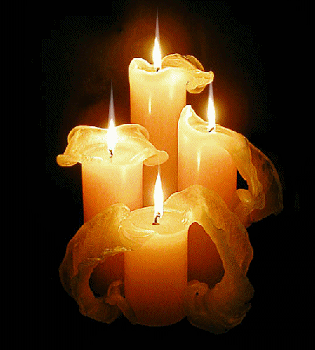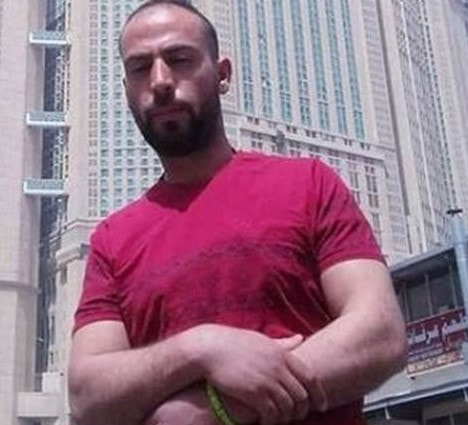19 july 2019
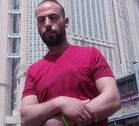
Palestinian Detainees and Ex-Detainees Affairs Commission has announced that the autopsy conducted on the body of the Palestinian prisoner Nassar Taqatqa found out that he died because of medical neglect after he suffered serious pneumonia.
The human rights commission said in a statement on Thursday that Taqatqa was subjected to deliberate medical neglect by the Israel Prison Service.
The commission explained that the autopsy lasted for 5 hours and samples were taken from the detainee's body and the medications given to him after his arrest by the prison doctors.
Further examination will be carried out to determine the effect of those medications on Taqatqa's body.
The commission noted that Taqatqa was tightly chained during interrogation and scratch marks and wounds were found on his hands and feet.
The commission held the Israeli government and the prison administration responsible for this crime, and confirmed that Taqatqa was left alone without any medical intervention in an isolation cell in Nitzan prison.
Nassar Taqatqa, 31, was kidnapped by the Israeli occupation forces from his home in Beit Fajjar town in Bethlehem on 19 June. He died on 16 July while held in solitary confinement in Nitzan jail.
The human rights commission said in a statement on Thursday that Taqatqa was subjected to deliberate medical neglect by the Israel Prison Service.
The commission explained that the autopsy lasted for 5 hours and samples were taken from the detainee's body and the medications given to him after his arrest by the prison doctors.
Further examination will be carried out to determine the effect of those medications on Taqatqa's body.
The commission noted that Taqatqa was tightly chained during interrogation and scratch marks and wounds were found on his hands and feet.
The commission held the Israeli government and the prison administration responsible for this crime, and confirmed that Taqatqa was left alone without any medical intervention in an isolation cell in Nitzan prison.
Nassar Taqatqa, 31, was kidnapped by the Israeli occupation forces from his home in Beit Fajjar town in Bethlehem on 19 June. He died on 16 July while held in solitary confinement in Nitzan jail.
18 july 2019
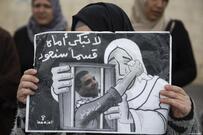
Since 1967, 220 Palestinian prisoners have died in Israeli prisons. The latest victim is Nasser Taqatqa, detained in June from his home in Beit Fajjar, accused of purportedly having ties to Hamas. Taqatqa, age 31, was interrogated by Shin Bet, tortured and placed in solitary confinement.
On Tuesday he was found dead, prompting another wave of anger among Palestinians and much needed focus on the plight of Palestinian prisoners in Israeli jails.
According to Haaretz, Taqaqta was discovered dead in the prison’s mental health centre where was taken for medical supervision. Palestinian media states that he was transferred to different interrogation facilities and constantly placed in solitary confinement. Taqatqa was last seen in Nitzan prison, where it has been said he died in solitary confinement.
Israel has claimed Taqatqa died as a result of a stroke. Meanwhile the Palestinian Prisoners’ Society declared that autopsy results revealed extreme torture and abuse, leading to Taqatqa’s death.
The Palestinian Foreign Ministry issued a statement saying: “The martyrdom of Taqatqa in the interrogation cells demand an immediate action by the International Criminal Court and the opening of an official investigation into the crimes of the occupying power in order to pursue and prosecute Israeli war criminals.”
Needless to say, this statement fell on deaf ears. No call for justice has emanated from the international community. If the UN fails to take up the call of Palestinian prisoners while they are still alive, a tortured and dead prisoner will present no significance to the organisation.
Likewise, the Palestinian Authority’s continuous exploitation of Palestinian prisoners does not help to further its cause. On the contrary, it has facilitated the transfer of many Palestinians to Israeli jails, while the PA security services act like Israel’s extension in the occupied West Bank. The PA has no foundation whatsoever to speak about the rights of Palestinian prisoners. It is only a step ahead of the international community in terms of speaking out, due to perfunctory obligation which the UN can conveniently sidestep.
Meanwhile, the growing rift between the PA and the Palestinian people will continue to displace attention away from the Palestinian prisoners’ plight. Political authority is the determining factor which singles out the people as perpetual victims without protection from their leaders which is, of course, a favourable scenario for Israel.
Away from the cloistered arena of human rights jargon, there has yet to be a single instance where such rights can claim a single, irreversible victory. The media reports reactions – prisoners banging on doors and refusing meals at the news of a Palestinian prisoner’s death – but what do such reports tell us about the prisoners in Israeli jails? Nothing.
The collective efforts at stifling their voices, even to the point of murder through torture and medical negligence, is provoking an oblivion which is tantamount to a loss of identity, at least when it comes to perception from the outside. With the exception of Palestinians in close proximity with Israeli forces, who spares a thought for Palestinian prisoners before they are turned into temporary headlines by Israel’s colonial violence?
On Tuesday he was found dead, prompting another wave of anger among Palestinians and much needed focus on the plight of Palestinian prisoners in Israeli jails.
According to Haaretz, Taqaqta was discovered dead in the prison’s mental health centre where was taken for medical supervision. Palestinian media states that he was transferred to different interrogation facilities and constantly placed in solitary confinement. Taqatqa was last seen in Nitzan prison, where it has been said he died in solitary confinement.
Israel has claimed Taqatqa died as a result of a stroke. Meanwhile the Palestinian Prisoners’ Society declared that autopsy results revealed extreme torture and abuse, leading to Taqatqa’s death.
The Palestinian Foreign Ministry issued a statement saying: “The martyrdom of Taqatqa in the interrogation cells demand an immediate action by the International Criminal Court and the opening of an official investigation into the crimes of the occupying power in order to pursue and prosecute Israeli war criminals.”
Needless to say, this statement fell on deaf ears. No call for justice has emanated from the international community. If the UN fails to take up the call of Palestinian prisoners while they are still alive, a tortured and dead prisoner will present no significance to the organisation.
Likewise, the Palestinian Authority’s continuous exploitation of Palestinian prisoners does not help to further its cause. On the contrary, it has facilitated the transfer of many Palestinians to Israeli jails, while the PA security services act like Israel’s extension in the occupied West Bank. The PA has no foundation whatsoever to speak about the rights of Palestinian prisoners. It is only a step ahead of the international community in terms of speaking out, due to perfunctory obligation which the UN can conveniently sidestep.
Meanwhile, the growing rift between the PA and the Palestinian people will continue to displace attention away from the Palestinian prisoners’ plight. Political authority is the determining factor which singles out the people as perpetual victims without protection from their leaders which is, of course, a favourable scenario for Israel.
Away from the cloistered arena of human rights jargon, there has yet to be a single instance where such rights can claim a single, irreversible victory. The media reports reactions – prisoners banging on doors and refusing meals at the news of a Palestinian prisoner’s death – but what do such reports tell us about the prisoners in Israeli jails? Nothing.
The collective efforts at stifling their voices, even to the point of murder through torture and medical negligence, is provoking an oblivion which is tantamount to a loss of identity, at least when it comes to perception from the outside. With the exception of Palestinians in close proximity with Israeli forces, who spares a thought for Palestinian prisoners before they are turned into temporary headlines by Israel’s colonial violence?

The Arab League on Thursday held the Israeli authorities fully responsibile for the death of prisoner Nassar Taqatqa, who recently passed away in solitary confinement during the interrogation period.
"This reveals that Israeli interrogators use the most severe types of psychological and physical torture," Saeed Abu Ali, Arab League Assistant Secretary General for Palestine affairs and occupied Arab territories, said in a statement.
Nassar Taqatqa, 31, died in solitary confinement on Tuesday in Israel's Nitzan prison weeks after his detention.
Taqatqa was detained on June 19 after Israeli forces raided his family home in the village of Beit Fajjar south of Bethlehem city in the West Bank.
Meanwhile, the Arab League official called for an international commission of inquiry to look into this issue to ensure international accountability of the occupation authorities for this crime.
Abu Ali stressed the need for human rights organizations to play their humanitarian and legal role to protect the prisoners.
He also demanded human rights groups to confront the Israel's negligence of all international conventions and human rights principles as well as the obligations related to them under the Charter of the United Nations, the Universal Declaration of Human Rights, and the Geneva Convention on the Treatment of Prisoners of War.
"This reveals that Israeli interrogators use the most severe types of psychological and physical torture," Saeed Abu Ali, Arab League Assistant Secretary General for Palestine affairs and occupied Arab territories, said in a statement.
Nassar Taqatqa, 31, died in solitary confinement on Tuesday in Israel's Nitzan prison weeks after his detention.
Taqatqa was detained on June 19 after Israeli forces raided his family home in the village of Beit Fajjar south of Bethlehem city in the West Bank.
Meanwhile, the Arab League official called for an international commission of inquiry to look into this issue to ensure international accountability of the occupation authorities for this crime.
Abu Ali stressed the need for human rights organizations to play their humanitarian and legal role to protect the prisoners.
He also demanded human rights groups to confront the Israel's negligence of all international conventions and human rights principles as well as the obligations related to them under the Charter of the United Nations, the Universal Declaration of Human Rights, and the Geneva Convention on the Treatment of Prisoners of War.
17 july 2019

The Palestinian Prisoner’s Club released new information on the circumstances of the death of captive Nassar Majid Taqatqa, 31, on Wednesday. They have confirmed that he was martyred as a result of torture.
According to this new information, the prisoner was arrested on 19 June 2019, after special forces stormed his house in the town of Beit Fajjar. He was transferred to Maskubiya interrogation center and then to Jalameh interrogation center.
According to his fellow prisoners, his health deteriorated rapidly due to constant investigation.
On 9 July, he was transferred to a cell in the “Ma’abar” section of Megiddo detention center. He was severely beaten by the prison guards and chained to the bed.
Last Thursday, July 11, the administration refused to transfer him to public sections on the pretext that he was being punished. On Sunday, he was transferred to “Maabar” detention center of Megiddo prison on a stretcher, and placed in his room under special control because of his health.
He was later transferred to the hospital in Ramle until his death was announced yesterday morning in the cells of the Nitzan al-Ramla detention camp.
The Prisoner’s Club confirmed that Taqatqa was tortured at Megiddo detention center before his death, and there is preliminary information indicating that he may have suffered fractures in his limbs as a result of torture.
“The Israeli occupation authorities use systematic torture against prisoners, both psychological and physical, and there are hundreds of testimonies of prisoners of torture over decades, all of which are carried out with no regard to the provisions of the laws or international conventions, considering that torture is prohibited,” they stated.
‘Aziz Awaisat, from Jerusalem, was arrested a year ago by the occupation authorities and was also martyred as a result of torture by prison guards.
The Prisoner’s Club called on international human rights organisations to stand by their responsibilities and investigate the circumstances of the martyrdom of Nassar Taqatqa and the dozens of other prisoners, stating that refusing to condemn this crime is to allow the occupation to carry out more crimes of a similar nature.
According to this new information, the prisoner was arrested on 19 June 2019, after special forces stormed his house in the town of Beit Fajjar. He was transferred to Maskubiya interrogation center and then to Jalameh interrogation center.
According to his fellow prisoners, his health deteriorated rapidly due to constant investigation.
On 9 July, he was transferred to a cell in the “Ma’abar” section of Megiddo detention center. He was severely beaten by the prison guards and chained to the bed.
Last Thursday, July 11, the administration refused to transfer him to public sections on the pretext that he was being punished. On Sunday, he was transferred to “Maabar” detention center of Megiddo prison on a stretcher, and placed in his room under special control because of his health.
He was later transferred to the hospital in Ramle until his death was announced yesterday morning in the cells of the Nitzan al-Ramla detention camp.
The Prisoner’s Club confirmed that Taqatqa was tortured at Megiddo detention center before his death, and there is preliminary information indicating that he may have suffered fractures in his limbs as a result of torture.
“The Israeli occupation authorities use systematic torture against prisoners, both psychological and physical, and there are hundreds of testimonies of prisoners of torture over decades, all of which are carried out with no regard to the provisions of the laws or international conventions, considering that torture is prohibited,” they stated.
‘Aziz Awaisat, from Jerusalem, was arrested a year ago by the occupation authorities and was also martyred as a result of torture by prison guards.
The Prisoner’s Club called on international human rights organisations to stand by their responsibilities and investigate the circumstances of the martyrdom of Nassar Taqatqa and the dozens of other prisoners, stating that refusing to condemn this crime is to allow the occupation to carry out more crimes of a similar nature.
16 july 2019
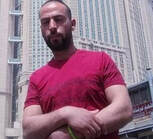
Nassar Taqateqa
A Palestinian prisoner on Tuesday morning died inside an isolation cell in the Israeli Nitzan jail.
According to Asra Media Office, prisoner Nassar Taqateqa was found dead in his cell, with no known reason.
Taqateqa was kidnaped from his home in Beit Fajjar town in Bethlehem last month.
The Palestinian Captive Movement has held the Israeli prison service fully responsible for the death of Taqateqa and called on human rights organizations to form a committee to probe his death.
Palestinian Detainee Dies In Solitary Confinement In Nitzan Israeli Prison
The Palestinian Prisoners’ Society (PPS) has reported, Tuesday, that a Palestinian detainee from Beit Fajjar town, south of the West Bank city of Bethlehem, died in solitary confinement in Nitzan Israeli Prison.
The PPS said the detainee, Nassar Majed Taqatqa, 31, was taken prison by Israeli soldiers on June 19 2019, and has been under interrogation since then. This was his first arrest by the army.
It also denied allegations by the Israel Prison Authority about his death and confirmed that the Palestinian did not have any preexisting health conditions.
The PPS held Israel fully responsible for his death, especially while under interrogation, as Palestinian detainees are frequently physically and psychologically tortured, in addition to the very bad living conditions they face, and the lack of medical treatment.
The PPS stated that the death of Taqatqa brings the number of detainees, who were killed or died in Israeli prisons since 1967, to 220.
The International Red Cross sent its condolences to the family and stated that although it does not take part in investigation committees or autopsy, it will be following the case closely with the Israeli authorities and the family.
It added that it is following the detainee’s death with great concern and advised refraining from publishing sensitive information for the privacy of the family.
In a statement, the Palestinian Center for Human Rights (PCHR) called for an immediate and impartial investigation into Taqatqa’s death while in solitary confinement in Nitzan (al-Ramla) Prison.
It quoted his family stating that the detainee did not have any health issues and was a completely healthy young man when he was taken prisoner.
The PCHR said:
According to human rights organizations’ reports followed up by PCHR’s field workers, Israeli forces arrested Taqatqa on 19 June 2019 after raiding his house in Beit Fajjar and taking him to al-Jalamah Center for investigation.
On 09 July 2019, the Israeli forces again raided and searched his family house while he was in prison. Two weeks after his arrest, the Israeli authorities sent Taqatqa to solitary confinement in “Nitzan” Prison (al-Ramla) in Israel to continue investigating with him.
Lawyer Raji Sourani, PCHR’s Director, commented on that by saying, “Israel has a black record of priors, which proves Israeli security services’ involvement in torture, inhuman treatment, and deliberate medical negligence against dozens of prisoners as part of an Israeli systematic policy and under legal cover.
Taqatqa, as said, did not have any health issues prior to his arrest, so his death during investigation raises suspicions, which urge opening an investigation into possible occurrence of torture and medical negligence.”
Taqatqa’s family said that this was his first arrest, and they knew about his death via media. Thus, they contacted the lawyer of the Detainees and Ex-Detainees Affairs Committee to confirm this news.
PCHR emphasizes that living conditions of around 5800 Palestinian prisoners in the Israeli jails continue to deteriorate; 700 of them who suffer chronic diseases and do not receive the adequate healthcare. PCHR also holds the Israeli government fully responsible for the death of Taqatqa and calls for a prompt and impartial investigation into the death circumstances.
A Palestinian prisoner on Tuesday morning died inside an isolation cell in the Israeli Nitzan jail.
According to Asra Media Office, prisoner Nassar Taqateqa was found dead in his cell, with no known reason.
Taqateqa was kidnaped from his home in Beit Fajjar town in Bethlehem last month.
The Palestinian Captive Movement has held the Israeli prison service fully responsible for the death of Taqateqa and called on human rights organizations to form a committee to probe his death.
Palestinian Detainee Dies In Solitary Confinement In Nitzan Israeli Prison
The Palestinian Prisoners’ Society (PPS) has reported, Tuesday, that a Palestinian detainee from Beit Fajjar town, south of the West Bank city of Bethlehem, died in solitary confinement in Nitzan Israeli Prison.
The PPS said the detainee, Nassar Majed Taqatqa, 31, was taken prison by Israeli soldiers on June 19 2019, and has been under interrogation since then. This was his first arrest by the army.
It also denied allegations by the Israel Prison Authority about his death and confirmed that the Palestinian did not have any preexisting health conditions.
The PPS held Israel fully responsible for his death, especially while under interrogation, as Palestinian detainees are frequently physically and psychologically tortured, in addition to the very bad living conditions they face, and the lack of medical treatment.
The PPS stated that the death of Taqatqa brings the number of detainees, who were killed or died in Israeli prisons since 1967, to 220.
The International Red Cross sent its condolences to the family and stated that although it does not take part in investigation committees or autopsy, it will be following the case closely with the Israeli authorities and the family.
It added that it is following the detainee’s death with great concern and advised refraining from publishing sensitive information for the privacy of the family.
In a statement, the Palestinian Center for Human Rights (PCHR) called for an immediate and impartial investigation into Taqatqa’s death while in solitary confinement in Nitzan (al-Ramla) Prison.
It quoted his family stating that the detainee did not have any health issues and was a completely healthy young man when he was taken prisoner.
The PCHR said:
According to human rights organizations’ reports followed up by PCHR’s field workers, Israeli forces arrested Taqatqa on 19 June 2019 after raiding his house in Beit Fajjar and taking him to al-Jalamah Center for investigation.
On 09 July 2019, the Israeli forces again raided and searched his family house while he was in prison. Two weeks after his arrest, the Israeli authorities sent Taqatqa to solitary confinement in “Nitzan” Prison (al-Ramla) in Israel to continue investigating with him.
Lawyer Raji Sourani, PCHR’s Director, commented on that by saying, “Israel has a black record of priors, which proves Israeli security services’ involvement in torture, inhuman treatment, and deliberate medical negligence against dozens of prisoners as part of an Israeli systematic policy and under legal cover.
Taqatqa, as said, did not have any health issues prior to his arrest, so his death during investigation raises suspicions, which urge opening an investigation into possible occurrence of torture and medical negligence.”
Taqatqa’s family said that this was his first arrest, and they knew about his death via media. Thus, they contacted the lawyer of the Detainees and Ex-Detainees Affairs Committee to confirm this news.
PCHR emphasizes that living conditions of around 5800 Palestinian prisoners in the Israeli jails continue to deteriorate; 700 of them who suffer chronic diseases and do not receive the adequate healthcare. PCHR also holds the Israeli government fully responsible for the death of Taqatqa and calls for a prompt and impartial investigation into the death circumstances.
